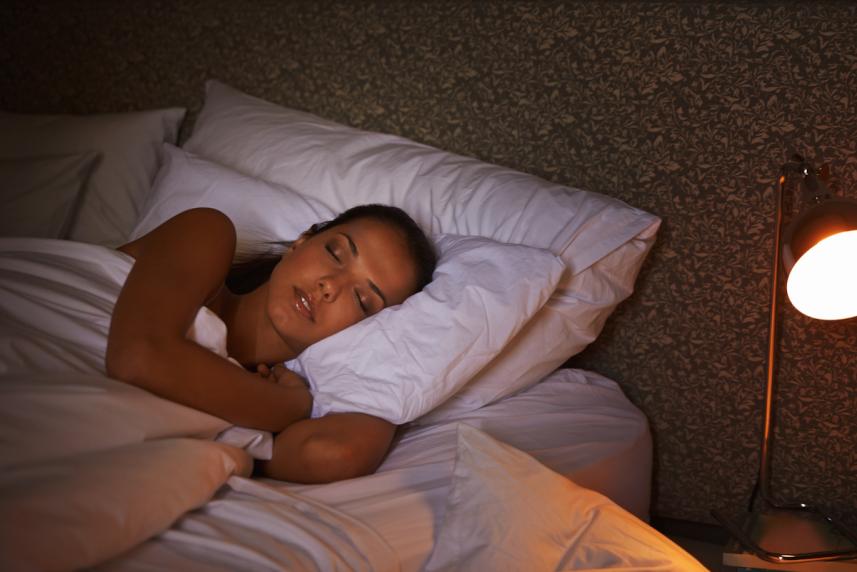Should you try a weighted blanket?
A closer look at the benefits of this unconventional treatment for anxiety and other stress disorders.

What if instead of hearing advice like “face your fears,” “engage with the world,” or “stop worrying so much,” people coping with anxiety heard phrases like “hit the sack” or “snuggle up”? Turns out, you can do just that with a weighted blanket. This natural remedy is exactly what it sounds like—a cozy blanket that weighs between 15 and 30 pounds, which is just enough pressure to help your body and mind relax.
Weighted blankets have been used for years to help comfort and calm children with autism, ADHD, or sensory issues. More recent research has prompted health experts to recommend the blankets for adults with anxiety issues, insomnia, or post-traumatic stress disorder. Some nursing homes also are experimenting with them as a way to help residents who have anxiety or dementia.
Even those without a clinical diagnosis are cozying up with a heavy blanket: Pinterest named weighted blankets a top trend for 2018 after “saves” of the item shot up 259 percent.
Should you give the buzzy anxiety-reducer a try? Here’s a closer look at the science behind weighted blankets.
What they are
Weighted blankets have compartments with plastic poly pellets sewn into them to give the blanket more mass (they’re usually between 15 and 20 pounds, but can be as light as four pounds or as heavy as 30).
What weight should you choose? One study found that participants who used weighted blankets preferred ones that weighed about 10 percent of their body weight. (Check with an occupational therapist and consult manufacturer guidelines when selecting the right size and weight for you; it’s especially important that children and older adults are able to push the blanket off with ease, if needed.)
How they work
Using the same principles as deep touch therapy, the blanket’s weight targets pressure points throughout the body, relaxing the nervous system. Studies show that when these pressure points are stimulated, the brain releases more serotonin, which is the body’s natural mood stabilizer. An imbalance of serotonin has been associated with depression and anxiety. Users who wore the blankets in various studies tended to report a sense of calm and comfort, using terms like “swaddling," “cocooning,” “gentle hugs,” and “getting a massage” to describe the experience.
Why it’s worth a shot
Weighted blankets have been shown to help relieve (or better manage) symptoms associated with anxiety and insomnia. Participants in a study published in the Journal of Sleep Medicine and Disorders reported falling asleep faster and staying asleep longer when using weighted blankets rather than regular blankets. And in the previous study, which appeared in Occupational Therapy in Mental Health, 63 percent of participants reported lower anxiety after using a weighted blanket as opposed to lying down with no blanket, and 78 percent said they felt more relaxed with the blanket than without. There isn’t enough evidence to show any benefits for those with depression.
Check with your doctor
Even though weighted blankets are considered safe for most, you should check with your doctor or an occupational therapist before buying one. These blankets should not be used as a replacement for any existing treatment. Also, weighted blankets are not recommended for anyone who is recovering from surgery or anyone with a respiratory or circulatory problem.


